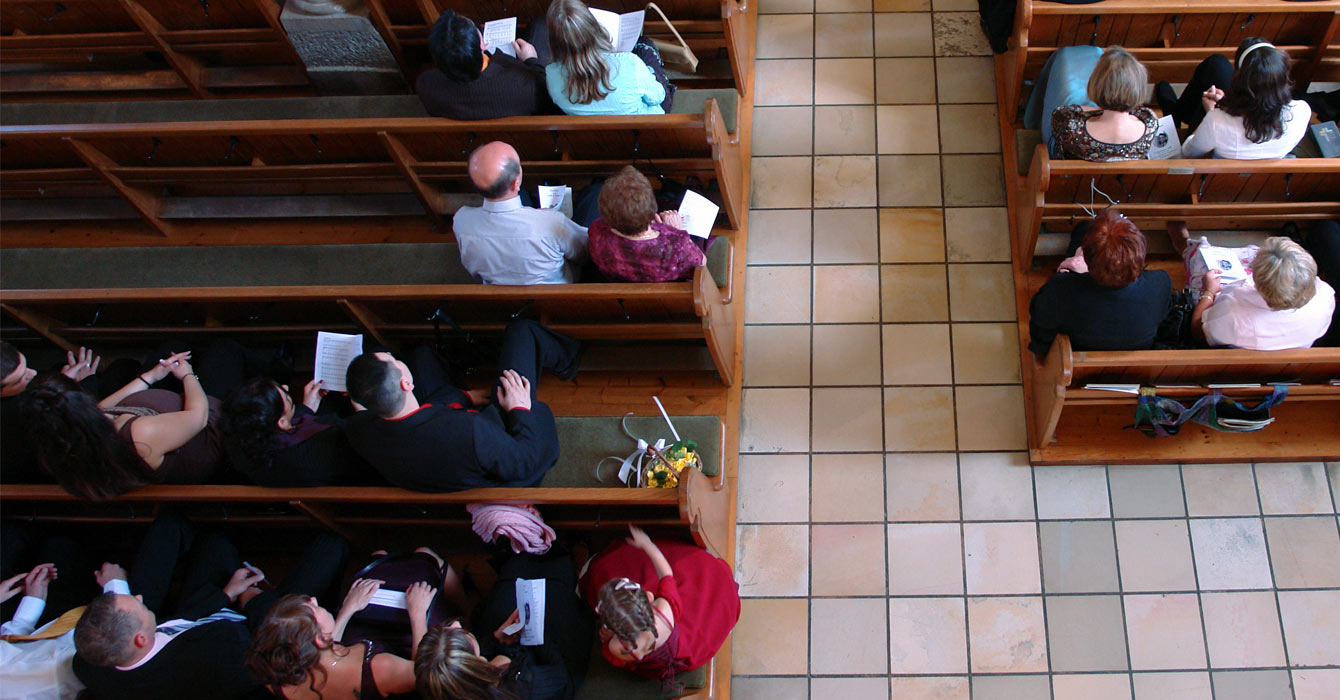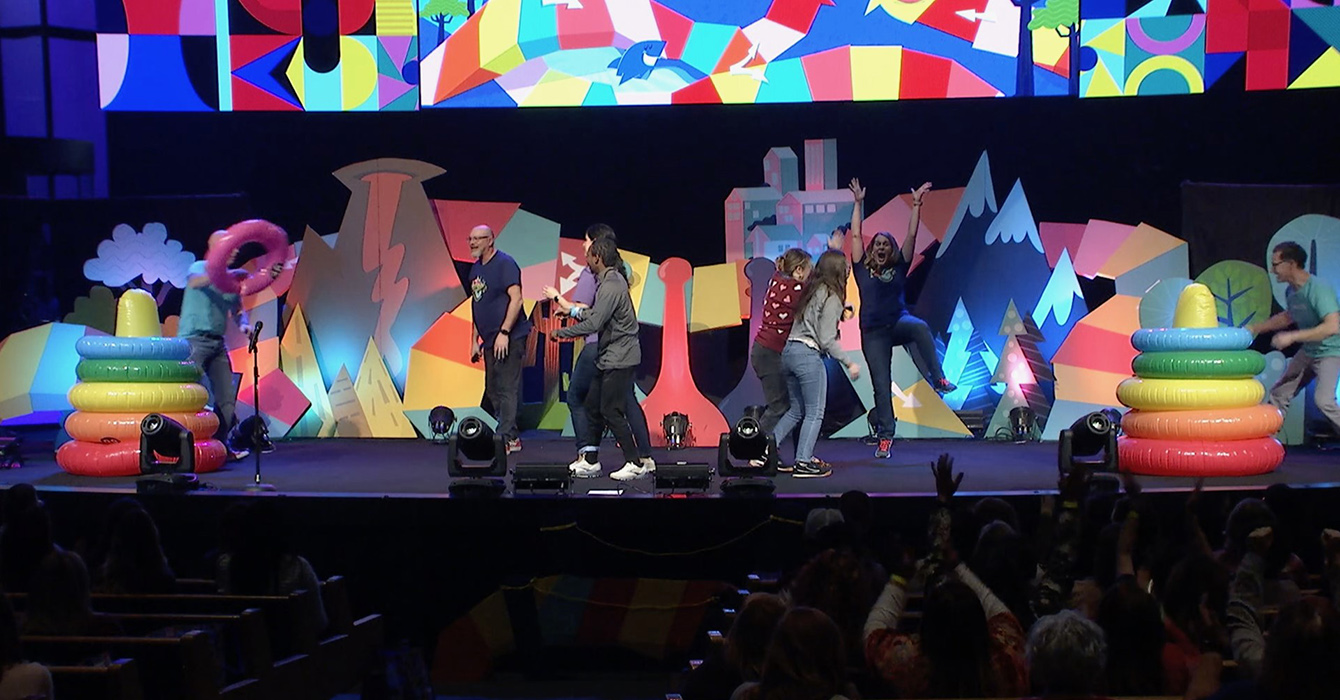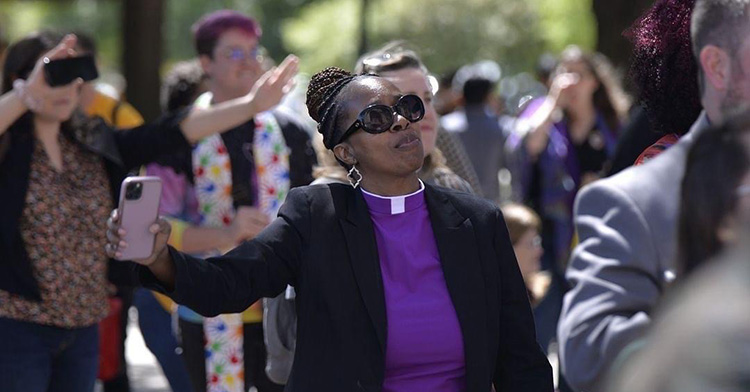Even as the decline in the share of Americans who identify as Christians now “shows signs of leveling off,” there are differences between the prayer habits of young adults and those of the oldest U.S. adults, according to a recent Pew Research Center survey.
Pew Research Center has conducted the Religious Landscape Study (RLS) three times over the past 17 years. The latest findings, compiled from the responses of 36,908 U.S. adults and published in February, show that 27% of the youngest adults in the survey (ages 18 to 24) say that they pray daily while 58% of the oldest adults (ages 74 and older) say they do.
Prayer can be a deeply personal and individual practice. The fact that young people report engaging in it less often may be related to a few reasons.
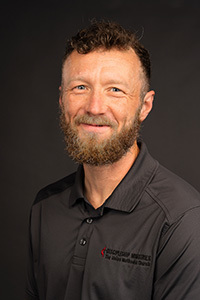
First, the perception of a regular churchgoer has shifted in recent years, said Chris Wilterdink, executive director of Congregational Vitality and Intentional Discipleship and Director of Young People’s Ministries of the United Methodist Church. While “regular” used to mean someone who attended church weekly, now it means “somebody that you see once a month,” said Wilterdink, who is not affiliated with the study but offered his expertise on youth ministry.
In fact, the RLS used “at least monthly” as the time frame for religious service attendance. The youngest adults say they are less likely to attend religious services at least monthly (25% of the youngest adults vs. 49% of the oldest adults).
While the RLS data does not determine why young people are praying less often, Wilterdink said that church attendance might figure in.
“Even though that label of being a ‘regular’ church attender still may be accurate, if you’re only seeing somebody once a month, no matter what age they are, the ability of the church to prepare or equip or even help somebody practice a life of prayer or any other spiritual disciplines really is pretty significantly reduced from what it would’ve been 20 to 25 years ago,” Wilterdink said. “When there are less opportunities to practice a spiritual discipline or to find different [meaningful] prayer practices … that presents some challenges.”
Wilterdink, who previously served as youth director at St. Luke’s United Methodist Church in Highlands Ranch, Colorado, also said that today’s young people may take their faith questions to Google, AI platforms or social networks rather than youth ministers.
“If that’s the mode where young people are used to asking questions that are related to theology and faith, in some ways it shows me that of course they would report praying less because they’re in less in-person contact with church leadership,” he said.
Younger adults also might be engaging in other spiritual and reflective practices besides prayer.
“We can’t say for sure whether young adults substitute another practice for prayer, but there are several other spiritual measures we’ve asked about in recent years, and it’s not uncommon to see that young adults are more likely than older adults to do those,” said Chip Rotolo, a research associate on Pew Research Center’s Religion and Public Life team.

Interested in more research relevant to Christian leaders?
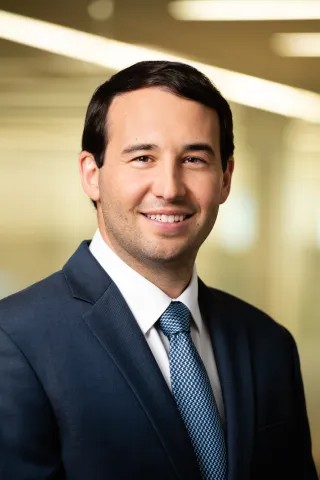
For instance, Rotolo said the center’s research has shown that young adults are slightly more likely than their older counterparts to say they regularly “feel a deep sense of wonder about the universe” and “visit nature spots for spiritual reasons” and that they are slightly more likely to practice yoga for spiritual reasons. He was the primary researcher on a report published by Pew Research Center in May that shows younger people are more likely than older adults to consult astrology, tarot cards, and fortune tellers — 37% of Americans ages 18 to 29 say they consult astrology at least yearly.
Rotolo said that different age groups may have different spiritual practices simply because young adults are genuinely more interested in different things than older adults are. Rather than drawing major conclusions about the kinds of spiritual practices that young adults are doing, it may help to ask a simpler question.
“It’s always good to think about how some of these practices differ by age, but at the same time to try to figure out: Is it really because young adults are gravitating towards those things? Or is it because [the oldest] adults [have] never done them and perhaps aren’t going to start doing them now?” he said.




